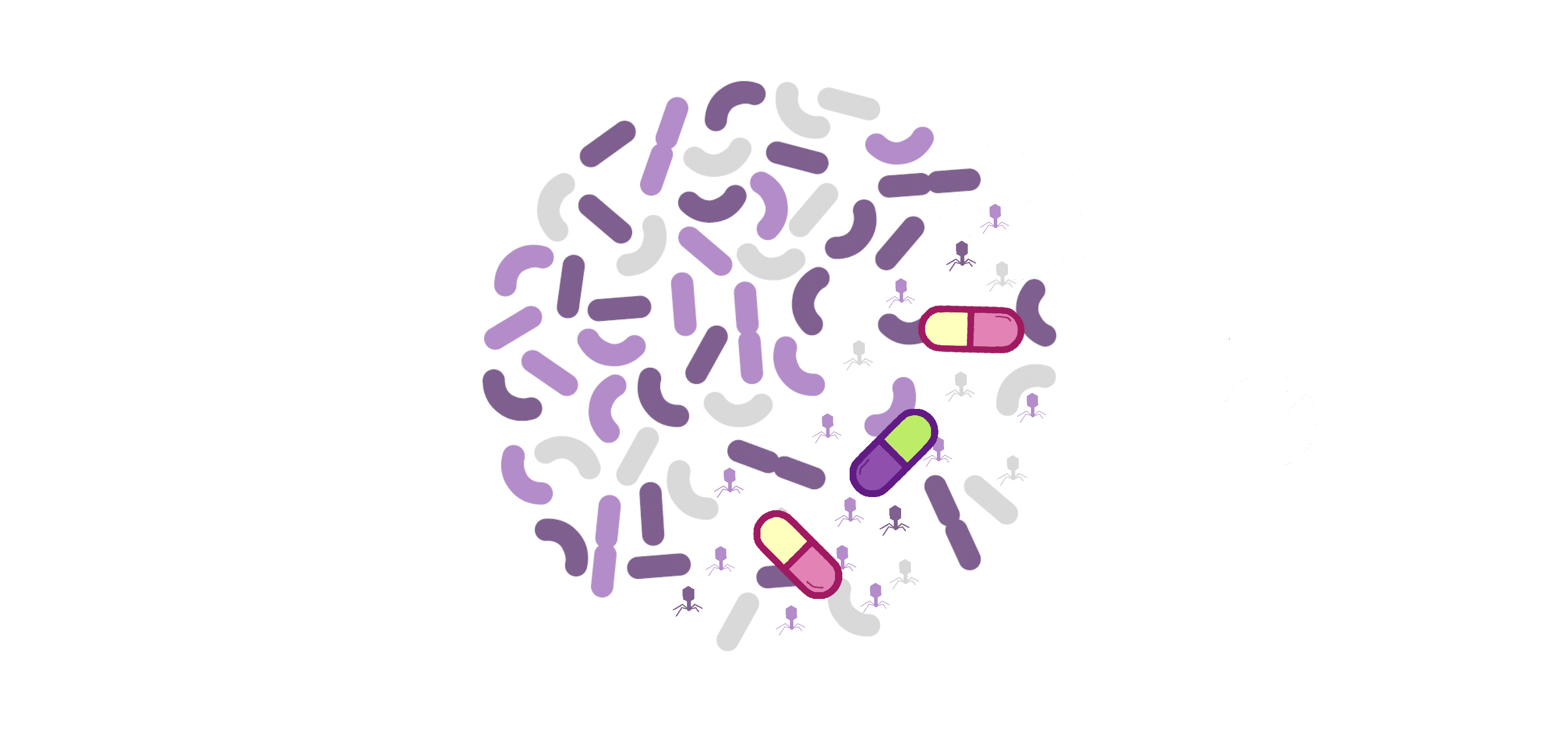Temperate phages truly know how to have it all. One minute they’re taking refuge in their host bacteria when the going gets tough, or piggy-backing off of a successful host. The next they are undergoing lytic replication, rapidly multiplying, and infecting new susceptible hosts. Even more surprising is that most bacteria tolerate this and carry at least one prophage in their genome. Prophage integration is hardly stable and temperate phages regularly switch from a quiescent prophage state to lytic replication. This switch is usually caused by triggering a stress response in the bacterial host.
In our recent research paper, we showed that growth inhibition of prophage-harboring gut bacteria by common oral medications leads to prophage induction and active viral replication.
The problem
Early studies of the human gut microbiome showed that temperate phages dominate the ecosystem, while more recent work suggests that the abundance of temperate phages can vary greatly between individuals. Both diet and disease have been shown to shape the phages found in the gut, while also being capable of inducing prophages. We wanted to know if medications, which have been shown to shape the bacterial and viral communities in the gut, might also be inducing prophages.
Using isolates to simulate the gut
To simulate a gut community as much as possible, we collected eight lysogenic gut bacteria representing the four major phyla of the human gut. We selected bacteria that had been proven to grow well in the laboratory anaerobically at 37°C.
Selecting the medications
Twelve medications, spanning five classes (non-steroidal anti-inflammatory, chemotherapy, mild analgesic, cardiac, and antibiotic) were selected for this study. The antibiotics had previously been reported to induce prophages. Medications were tested over a range of concentrations as prophage inducing concentrations are known to vary, and the exact concentration of these medications found in the gut are unknown.
Screening for bacterial inhibition & viral production
Screening each treatment for prophage induction was not feasible, so we decided to first perform a pre-screening step where we looked for inhibition of bacterial growth. Measuring bacterial growth inhibition is a lot more convenient than measuring virus production, and it’s also a good proxy for prophage induction since the mechanisms that trigger prophage induction (i.e. DNA damage) and viral replication often kill the host cell in the process. From these treatments, we quantified viral production by epifluorescence microscopy counting of virus-like-particles (VLP).
As we had hypothesized, bacterial inhibition by medication was almost always followed by an increase in VLPs, and about half the time the increase was significant, indicating prophage induction. Surprisingly, it was not only antibiotics which induced prophages, but most of our host-targeted drugs were also capable of inducing at least one prophage. Only two drugs did not induce a prophage under the conditions tested.
Confirming prophage induction by sequencing VLPs
Most of our isolates harboured more than one prophage. We wanted to see which prophage(s) were being induced by our library of medications, and if we would be able to predict whether a prophage could be induced by its genome content alone. Clostridium beijerinckii was the perfect candidate, as it had 11 predicted prophage regions, and produced the most VLPs. By sequencing the VLPs of C. beijerinckii, we show that the the in silico predicted prophages were being induced.
When it comes to prophage induction, no one drug fits all
We were excited to confirm that medications, including non-antibiotics, could induce prophages in a species-specific manner. No one drug induced prophages in all isolates, and the inducing concentration varied between species. This effect was even more pronounced among the non-antibiotic drugs where just two bacteria (C. beijerinckii and Bacteroides caccae) represented most of the prophage induction.
Moving forward
We think these results are the first step in understanding how the relationship between bacteria and viruses in the gut may be shaped by medication consumption. It will be interesting to see how these results play out at community level in vivo, why there is such a species-specific response, as well as how these non-antibiotic drugs are actually triggering prophage induction.
Additional resources
Sutcliffe, S.G.; Shamash, M.; Hynes, A.P.; Maurice, C.F. Common Oral Medications Lead to Prophage Induction in Bacterial Isolates from the Human Gut. Viruses 2021, 13, 455. https://doi.org/10.3390/v13030455
Thanks to Atif Khan for help finding and summarizing this week’s phage jobs and community posts!






